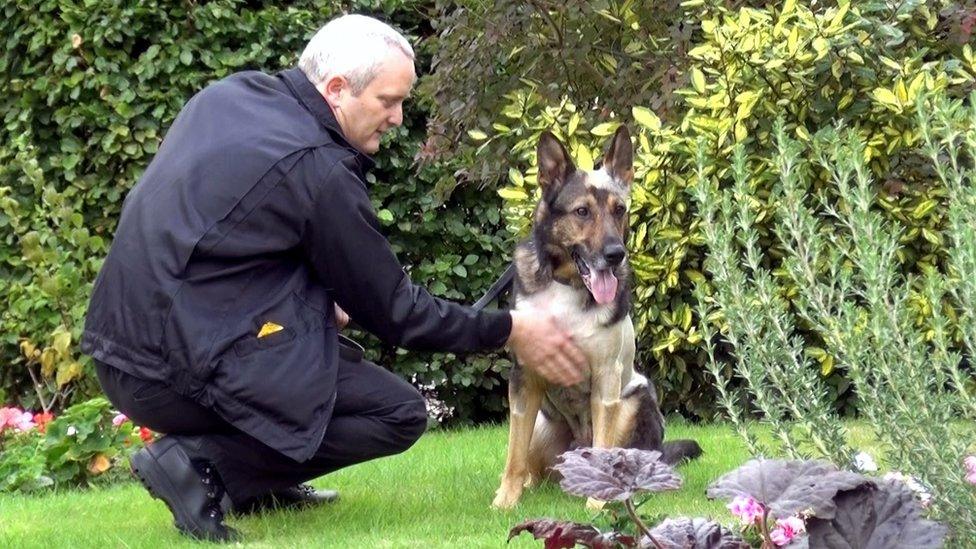Finn's Law: Northamptonshire Police collars honour stabbed dog
- Published

Police dog Olly and his handler PC Sam Clark show off his new named collar and warrant card
Police dogs in Northamptonshire are being formally recognised as "colleagues and protectors" to mark a new law protecting service animals.
"Finn's Law", named after the police dog who almost died protecting his handler, includes harsher terms for those who harm police dogs and horses.
The force has introduced named collars, numbers and warrant cards for its dogs.
It said the new law gave added protection to its dogs who "put their life on the line every day".
The new Animal Welfare (Service Animals) Act, external came into force on Saturday, following a long campaign spearheaded by Hertfordshire police dog handler PC Dave Wardell.
His German shepherd Finn was stabbed and seriously hurt as he protected PC Wardell from an attacker in 2016.
However, under the law Finn was considered "property" and the attack was treated as criminal damage.
The new law makes it harder for those who harm service animals to claim they were acting in self-defence and means it is now a criminal offence to cause them unnecessary suffering.

Police dog Finn received the PDSA Gold Medal in March for police service
To mark its introduction, five new police dogs were presented with their own collar, engraved with their name and new collar number, as well as personalised warrant cards, by the force's Chief Constable Nick Adderley.
All its serving dogs will be issued with the same, and a memorial plaque will be erected in the force's headquarters bearing the name and collar of each future service police dog which passes away.
Mr Adderley said the new law "means rightly identifying them as our colleagues and protectors, who are as valued as our officers and staff, and to protect them throughout their working career with the force".
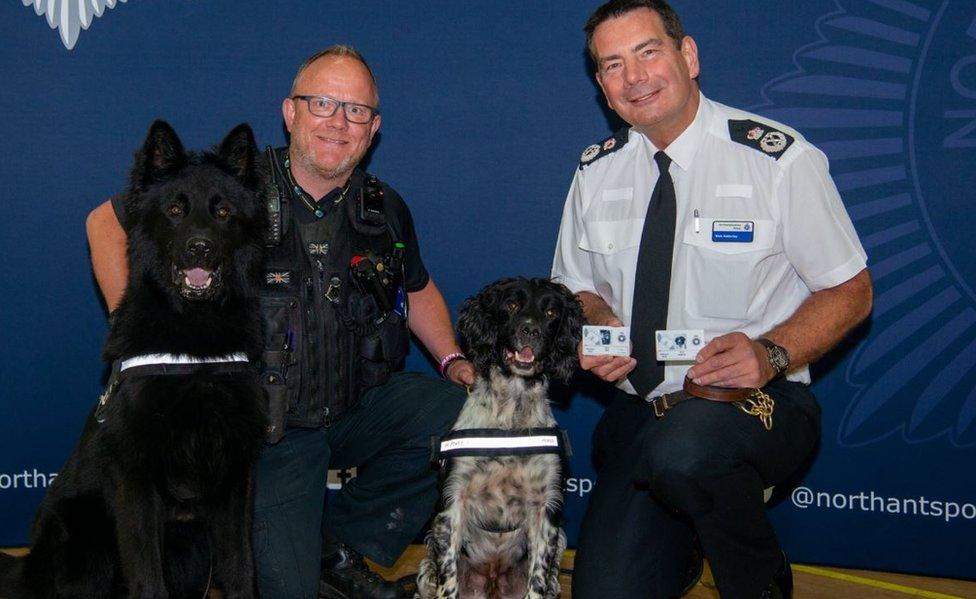
Northamptonshire Police has introduced named collars, numbers and warrant cards for its dogs
A force spokeswoman said there had been "wide interest... from other forces" after it announced the new collars and cards.
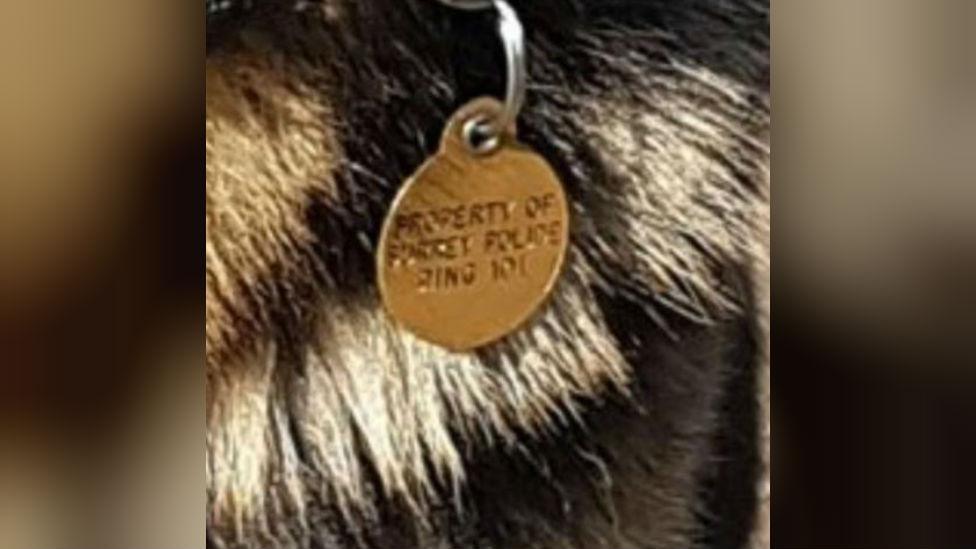
Surrey Police pledged to removed the words "property of Surrey Police" from its dogs' tags
In April, after "Finn's Law" was passed by the House of Lords, Surrey Police confirmed it would be removing the word "property" from the tags of all its service dogs.
Allow X content?
This article contains content provided by X. We ask for your permission before anything is loaded, as they may be using cookies and other technologies. You may want to read X’s cookie policy, external and privacy policy, external before accepting. To view this content choose ‘accept and continue’.
- Published8 June 2019

- Published11 March 2019
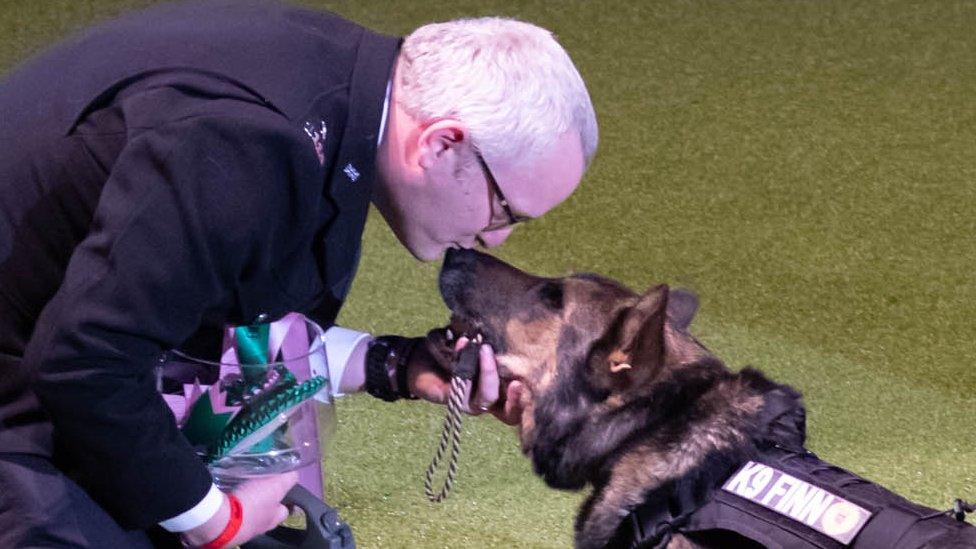
- Published8 February 2019

- Published7 June 2018
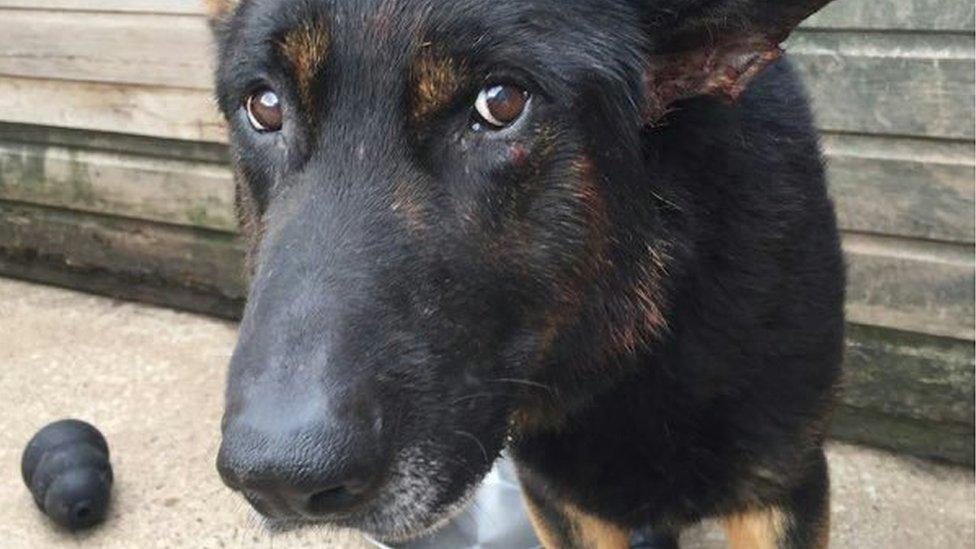
- Published11 May 2017
